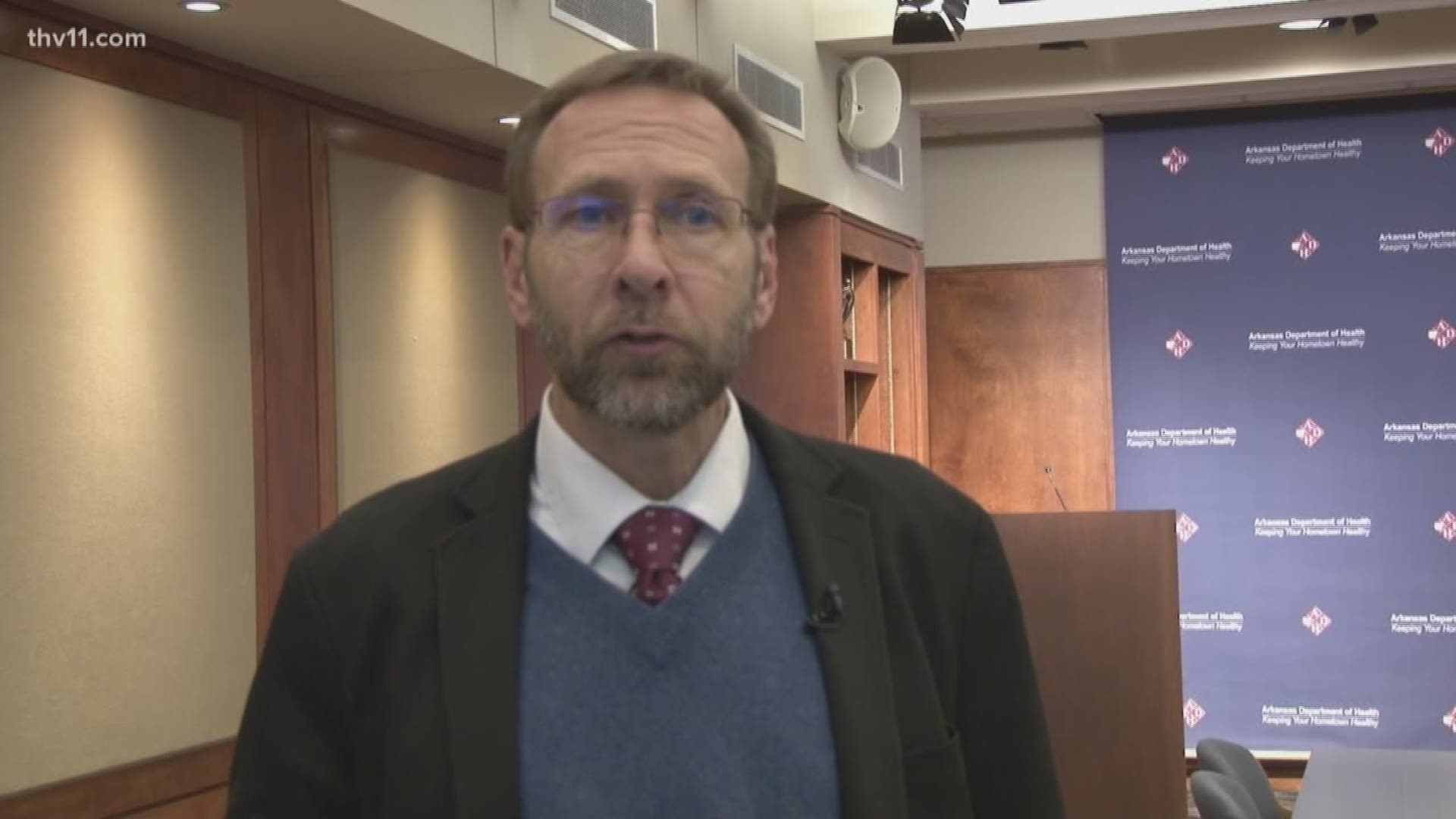The head of the FDA says the federal government may have to intervene if states don't get tougher on making sure children get vaccinated. It comes as Washington state is dealing with an outbreak that has led to a state of emergency and a cluster of mumps cases turned up at the University of Arkansas, Fayetteville.
Arkansas is among the 47 states that allow parents to exempt their children from getting immunized. While most states allow them to do this for religious reasons, Arkansas is also among the 17 states that allow for philosophical exemptions because of personal, moral or other beliefs, according to the National Conference of State Legislatures (NCSL).
"Some states are engaging in such wide exemptions that they're creating the opportunity for outbreaks on a scale that is going to have national implications," FDA Commissioner Dr. Scott Gottlieb said Tuesday in an interview with CNN. He went on to say that if some states don't change course, it may "force the hand of the federal health agencies."
However, Gottlieb did not get specific about what actions could be taken and a spokesperson for the FDA said they could offer no further comment on his remarks.
While the FDA isn't directly in charge of getting Americans vaccinated against diseases, the comments from such a high-ranking federal health official fueled the fire in the already red-hot debate over vaccines and exemptions from them.
“It is highly inappropriate for federal government officials particularly the commissioner of the FDA to threaten state legislators with federal action if they don't tighten vaccine exemption laws,” said Barbara Loe Fisher, president of the National Vaccine Information Center which advocates for people to opt out of shots through informed consent.
“In Arkansas, we've had very good partnership with the federal government and a lot of support with our vaccine program,” said Dr. Nate Smith, the director of the state Department of Health. “I think a lot of people, not just health officials, feel frustration when children are sick and even when children die.”
There are no plans to alter Arkansas’ rules over exemptions. The legislature allowed philosophical exemptions beginning in 2003. Laws requiring additional shots to attend school kicked in in 2014. A significant jump in exemptions followed over the next year. Washington state lawmakers were weighing two measures this week that would remove parents' ability to claim a personal or philosophical exemption to vaccinating their school-age children. The bills come amid a measles outbreak that has sickened at least 65 people in the state. Washington Gov. Jay Inslee declared a state of emergency last month.
The epicenter is in Clark County in southwest Washington, where there were 64 cases. Of those, 56 patients were not vaccinated and two people received one dose of the vaccine, health officials said. It's unclear whether the other six cases received the vaccine. Forty-six cases were found in children between one and 10 years old.
Dr. Smith says many of the 8,016 exemptions are concentrated in the northwest part of the state. Measles outbreaks have occurred there and an ongoing “cluster” of mumps cases in Fayetteville has health officials issuing warnings.
But while health officials like Dr. Smith, the American Medical Association and the American Academy of Pediatrics continue to urge fewer exemptions on immunizations, groups like Fisher’s are resisting.
“The federal government has made vaccine recommendations and the states have made vaccine laws,” she said. “The federal government should not be interfering in what is a states' rights issue.”
Fisher said doubts persist over the risks of widespread immunization programs. Dr. Smith has concerns not about federal overreach, but how people get their information about vaccines.
“I'm concerned that parents get their information from reliable sources, especially when their children's lives and health are at risk,” he said. “Vaccines are safe. Vaccines are effective. Parents should get their children vaccinated to prevent vaccine-preventable illnesses.”
California, Mississippi and West Virginia are the only states that do not have religious or personal exemptions for vaccinations, according to NCSL.

